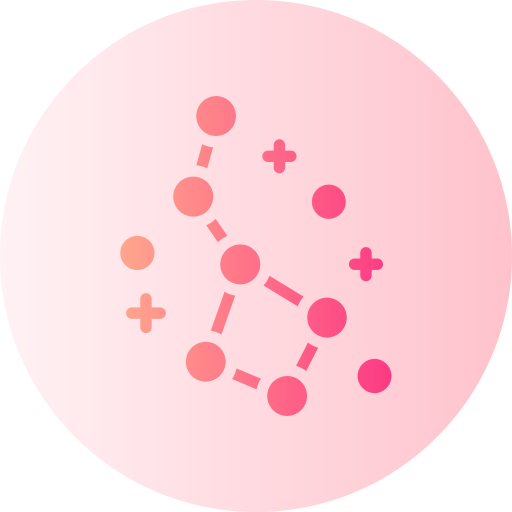Blood Type Test | Blood Group Test in Dubai | Blood Group Test Near Me | Blood Type Test | Blood Typing |Blood Grouping
Blood Group Test: Unveiling Your Biological Identity
Purpose: Understanding Your Blood Group
The Blood Group Test serves a fundamental role in healthcare, providing crucial information about an individual's blood type. The primary purpose of this test is to determine the ABO and RhD blood groups, ensuring compatibility for blood transfusions and assessing potential risks during pregnancy.
The Blood Group Test is indicated in various scenarios:
1. Blood Transfusions: Before any blood transfusion, it is imperative to match the donor's and recipient's blood types to prevent potentially life-threatening reactions.
2. Pregnancy and Rh Incompatibility: Rh factor is critical during pregnancy. If an Rh-negative mother is carrying an Rh-positive baby, complications may arise, making blood group testing essential for proper management.
3. Organ Transplants: Assessing blood compatibility is crucial for organ transplants to minimize the risk of rejection.
4. Emergency Situations: In emergencies, rapid blood typing helps healthcare professionals provide immediate and appropriate care.
Procedure: How the Blood Group Test is Conducted
The Blood Group Test involves a straightforward procedure:
1. Blood Sample Collection: A small blood sample is usually drawn from a vein in the arm using a needle.
2. Mixing with Antisera: The blood sample is mixed with specific antibodies known as antisera, which react with the A, B, and Rh antigens on the surface of red blood cells.
3. Observation of Agglutination: The reaction results in either agglutination (clumping) or no reaction, indicating the blood type.
4. Determination of Blood Group: Based on the reactions observed, the blood type is determined, classifying it as A, B, AB, or O, along with the Rh factor (positive or negative).
Normal Range: Decoding Blood Types
The normal range for blood types includes four main categories: Blood Type Test | Blood Group Test
1. Type A: Presence of A antigens, absence of B antigens.
2. Type B: Presence of B antigens, absence of A antigens.
3. Type AB: Presence of both A and B antigens.
4. Type O: Absence of both A and B antigens.
The Rh factor is either positive (+) or negative (-).
Interpretation: Deciphering Blood Group Results
The interpretation is straightforward: Blood Typing | Blood Grouping
- A positive result (e.g., A+): Indicates the presence of A antigens and Rh factor.
- B negative result (e.g., B-): Signifies the absence of B antigens and the Rh factor.
Understanding your blood group is vital for medical professionals to provide safe and effective healthcare. It ensures compatibility in blood transfusions, minimizes risks during pregnancy, and guides medical interventions in emergencies.
The Blood Group Test is a foundational aspect of healthcare, contributing to safe medical practices and personalized patient care. Knowing your blood group is not only essential for medical procedures but can also be crucial in emergency situations. Regularly updated blood group information in your medical records ensures that healthcare providers can act swiftly and effectively when needed. Embrace the knowledge of your blood group as a vital aspect of your overall health awareness.
Blood Group Types: A Comprehensive Guide Blood Typing |Blood Typing
1. Blood Group A: Blood Grouping | Blood Typing
- Antigens: A
- Antibodies: Anti-B
- Compatibility: Can receive blood from A and O donors.
2. Blood Group B: Blood Grouping | Blood Typing
- Antigens: B
- Antibodies: Anti-A
- Compatibility: Can receive blood from B and O donors.
3. Blood Group AB: Blood Grouping |Blood Typing
- Antigens: A and B
- Antibodies: None
- Compatibility: Universal plasma donor, can receive blood from A, B, AB, and O donors.
4. Blood Group O: Blood Grouping |Blood Typing
- Antigens: None
- Antibodies: Anti-A and Anti-B
- Compatibility: Universal blood donor, can receive blood from O donors.
5. Rh Factor (RhD): Blood Grouping | Blood Typing
- Rh-Positive (+): Presence of Rh factor
- Rh-Negative (-): Absence of Rh factor
- Compatibility: Rh-positive individuals can receive Rh-positive or Rh-negative blood. Rh-negative individuals should receive Rh-negative blood.
Compatibility Matrix: Blood Grouping | Blood Typing
- A Positive (A+): Can receive A+, A-, O+, O-
- B Negative (B-): Can receive B-, O-
- AB Positive (AB+): Can receive all blood types (universal recipient)
- O Negative (O-): Can only receive O- (universal donor)
Importance of Knowing Your Blood Group:Blood Grouping | Blood Typing
1. Blood Transfusions: Matching blood types is critical to avoid adverse reactions during transfusions.
2. Organ Transplants: Ensures compatibility between donor and recipient.
3. Pregnancy: Rh compatibility is crucial to prevent issues during pregnancy.
Blood Type Frequencies: Blood Grouping | Blood Typing
- O Positive (O+): Most common blood type.
- AB Negative (AB-): Rarest blood type.
Conclusion: Embracing Diversity for Better Health
Understanding your blood type empowers you and your healthcare providers to make informed decisions regarding medical interventions. Whether you are a universal donor or recipient, knowing your blood group can be a life-saving piece of information. Regular blood donations and awareness contribute to a safer and healthier community. Embrace the diversity of blood groups, and remember: every drop counts.
*Note: While the information provided is generally accurate, individual variations and additional blood group systems may exist. Consult with healthcare professionals for specific and personalized information about your blood type.*
Our services related to labs in dubai :
What is the cost of a Blood Group test in Dubai UAE?
Blood Group Test price starts from 200 Aed in Dubai.
Where Can I get tested for Blood Group Test in dubai?
we have DHA certifed Laboratory where professional and highly trained nurses in dubai will take blood sample at home at the comfort of client house. Call 0509796922 to make an appointment. 24x7 appointment available.
Where Can i get Blood Group Lab Blood Test at Home Dubai UAE?
Onelife provides all lab test at home in dubai . You Can now easily get tested for blood at your comfort of home. For Appointment Call 0509796922 for getting lab test at home
Get Tested for blood group Testing in Dubai?
Searching for blood group Test Near Me dubai at Onelife Provides blood group testing in Dubai. Call 0509796922 , Blood group Test Near Me








